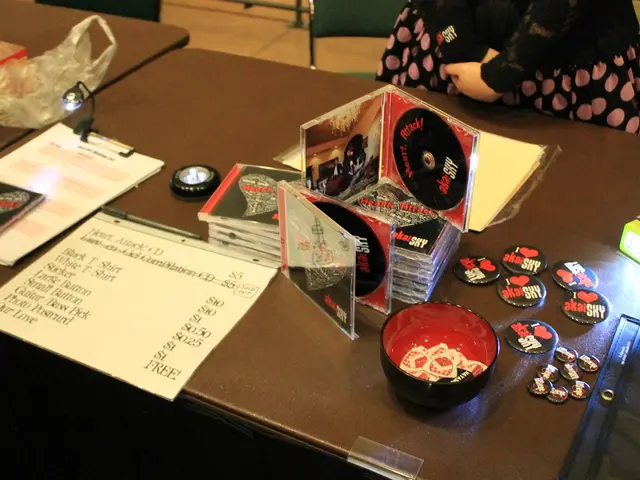Inquiry Being Made by Significant Toyota Stockholder
In a recent General Shareholders' Meeting, key executives at Toyota discussed the company's strategies and challenges in various areas, including electrification, supply chain management, and water conservation.
Yoichi Miyazaki, Operating Officer and Chief Competitive Officer, emphasised the importance of Toyota reacting more swiftly to changes in the business environment. He underscored the need for close collaboration with regional CEOs to ensure a quick and effective response.
Masahiko Maeda, Executive Vice President, discussed Toyota's electrification strategy aimed at achieving carbon neutrality. He explained that the company is developing a full lineup of vehicles to meet diverse customer needs globally.
The Q&A session, lasting 90 minutes, covered a range of topics, including the chip shortage, electrification strategy, carbon neutrality, and water conservation. Kazunari Kumakura, Purchasing Group Chief Officer, addressed the chip shortage and the countermeasures, stating that a single car requires around 1,000 chips of various types. He mentioned that the current tight chip supply and strong demand make it hard to maintain inventory and production.
Toyota has taken steps to conserve water by eliminating water use in production and making continuous improvements, including water reuse in manufacturing. However, the company is also pursuing various green technologies to achieve carbon neutrality, but such technologies become green only through widespread use.
Takahiro Imura, Production Group Chief Officer, discussed the impact of the large-scale leaks at Meiji Yosui Toshuko, a water intake facility in Toyota City, Aichi, on production. The leaks have led to the suspension of operations at two production lines, affecting approximately 600 vehicles.
Yasuhiko Sato, Japan Sales Business Group Chief Officer, addressed improper inspections affecting 7,000 vehicles at 39 outlets nationwide. He stated that these are legal violations that must not be allowed to occur, and quick inspections, a service with a one-hour turnaround time, were a contributing factor to the improper inspections.
James Kuffner, Chief Digital Officer and CEO of Woven Planet Holdings, talked about the development of a new software platform called Arene, aiming to ship it to production by 2025, and the building of Woven City as a test course for accelerating mobility product development.
Masahiko Maeda also discussed Toyota's transformation into a mobility company and the need to grow as a service platform provider that openly collaborates with various industries and companies. He stated that carbon neutrality means eliminating carbon emissions from materials procurement, production, and driving.
President Toyoda often reminds the team to keep their cool during crises, reassuring everyone globally. Akio regards the endorsement and support of stakeholders as a guideline for decisions and actions.
Regarding the successor to Akio Toyoda, no current information is available. Yoichi Miyazaki stressed the importance of robust supply chains for smooth production and ensuring that Toyota's products fit different regional conditions and customer preferences to increase uptake.
In conclusion, Toyota is facing numerous challenges, but the company is actively working to address these issues, from improving supply chains to developing green technologies and ensuring the quality of their products. The future looks promising as Toyota continues to innovate and adapt to the changing business environment.
Read also:
- Understanding Hemorrhagic Gastroenteritis: Key Facts
- Trump's Policies: Tariffs, AI, Surveillance, and Possible Martial Law
- Expanded Community Health Involvement by CK Birla Hospitals, Jaipur, Maintained Through Consistent Outreach Programs Across Rajasthan
- Abdominal Fat Accumulation: Causes and Strategies for Reduction







